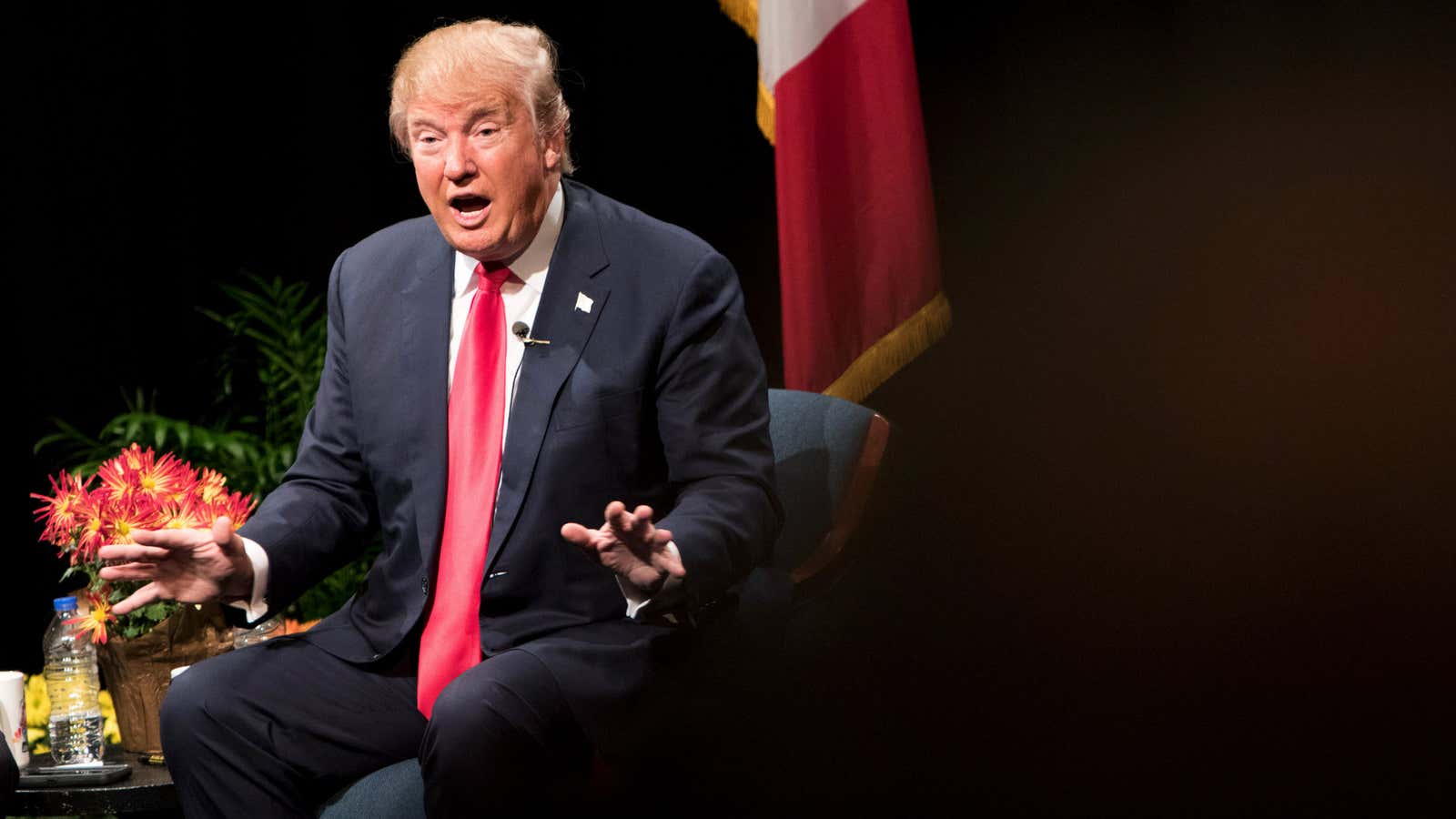Republican presidential candidate Donald Trump said in an interview Thursday (Nov. 19) that if elected he would consider forcing Muslim Americans to register in a database and have a special form of identification that would note their religion, sparking immediate comparisons to the treatment of Jewish Germans in the Nazi era.
Trump said “security is going to rule” in America to take on radical Islamic terrorism, and that would mean greater surveillance of Muslim Americans.
When Yahoo News asked “whether this level of tracking might require registering Muslims in a database or giving them a form of special identification that noted their religion” Trump replied: “We’re going to have t —we’re going to have to look at a lot of things very closely. We’re going to have to look at the mosques. We’re going to have to look very, very carefully.” He also said during the interview he would kick out all Syrian refugees who had entered the United States if elected, that Hillary Clinton doesn’t have the “strength or stamina” to be president, and that he expects to win the Latino and black vote.
When asked later in the day about his remarks, Trump said he “would certainly implement” a database that tracked Muslims in the US. Asked about the difference between the idea of a Muslim database and Germany’s treatment of Jews under the Nazi regime by an NBC reporter, Trump ignored the question, then said “You tell me” (video).
The outcry to Trump’s tacit consideration of a “Muslim ID” and a database was fast and furious on social media.
In 1941, Nazi official Reinhard Heydrich decreed that all Jews over the age of six in the “Reich, Alsace, Bohemia-Moravia and the German-annexed territory of western Poland (called the Warthegau), are to wear yellow Star of David on their outer clothing in public at all times.” The names and locations of Jewish citizens were collected and organized in databases.
American Muslims began tweeting their anger at the idea directly to Trump:
Disparate organizations, from the Holocaust Museum to American Muslim groups, also issued statements after the interview was published.
The Holocaust Museum did not address Trump specifically, but circulated a statement the afternoon of Nov. 19 that said:
The Museum calls on public figures and citizens to avoid condemning today’s refugees as a group. It is important to remember that many are fleeing because they have been targeted by the Assad regime and ISIS for persecution and in some cases elimination on the basis of their identity.
The Council on American Islamic Relations called Trump and fellow Republican candidate Ben Carson “Islamophobic and unconstitutional.” In a separate interview on Nov. 19, Carson had compared Syrian refugees to “rabid dogs.”




